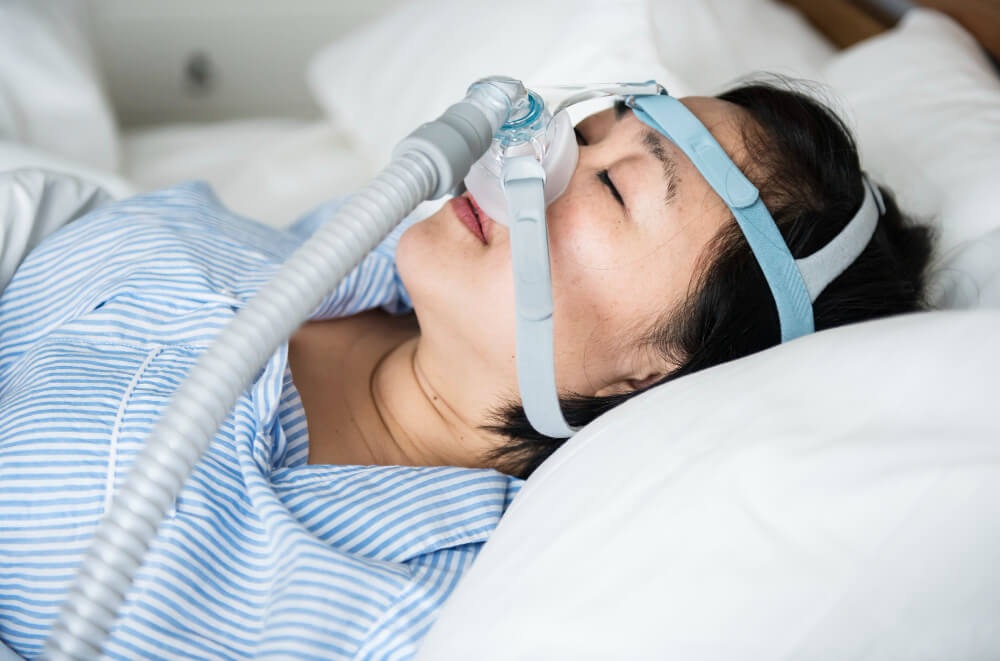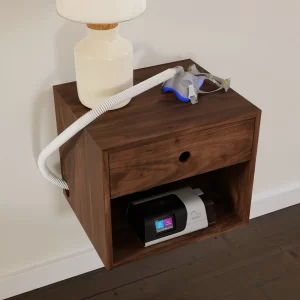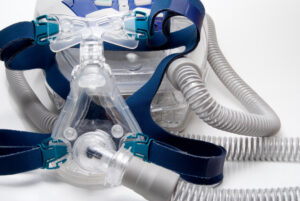CPAP gurgling is a common problem that can be caused by a number of factors, including:
- Condensation. When the air from your CPAP machine is warmer than the surrounding air, it can condense and form water droplets inside the tubing and mask. This can lead to gurgling sounds and, in some cases, even flooding of the mask. Read more: What Is CPAP Rainout and How Can I Prevent It?
- A dirty or clogged humidifier. If your humidifier is dirty or clogged, it can’t properly humidify the air, which can lead to condensation.
- A loose mask seal. If your mask seal is loose, air can leak out, which can also lead to condensation.
- A defective CPAP machine. In rare cases, a defective CPAP machine can cause gurgling.
If you’re experiencing CPAP gurgling, there are a few things you can do to try to fix the problem:
- Reduce the humidity setting. If your humidifier is set too high, it can cause condensation. Try reducing the humidity setting to see if that helps.
- Clean or replace the humidifier. If your humidifier is dirty or clogged, clean it according to the manufacturer’s instructions. If that doesn’t work, replace the humidifier.
- Make sure the mask seal is tight. If your mask seal is loose, tighten it according to the manufacturer’s instructions.
- Contact your CPAP provider. If you’ve tried all of the above and you’re still experiencing CPAP gurgling, contact your CPAP provider. They may be able to help you troubleshoot the problem or recommend a new CPAP machine.
Here are some additional tips to help prevent CPAP gurgling:
- Keep your CPAP machine in a cool, dry place. This will help to prevent condensation from forming.
- Drain the humidifier reservoir after each use. This will help to prevent bacteria from growing in the water.
- Clean your CPAP machine and mask regularly. This will help to keep them free of dirt and bacteria.
- Replace your CPAP machine and mask according to the manufacturer’s instructions.
If you have any questions or concerns about CPAP gurgling, be sure to talk to your CPAP provider.
Why Is My CPAP Making Gurgling Noises?
There are a few reasons why your CPAP might be making gurgling noises. The most common reason is condensation. When the air from your CPAP machine is warmer than the surrounding air, it can condense and form water droplets inside the tubing and mask. This can lead to gurgling sounds and, in some cases, even flooding of the mask.
Another possible reason for gurgling noises is a dirty or clogged humidifier. If your humidifier is dirty or clogged, it can’t properly humidify the air, which can lead to condensation.
A loose mask seal can also cause gurgling noises. If your mask seal is loose, air can leak out, which can also lead to condensation.
Finally, in rare cases, a defective CPAP machine can cause gurgling. If you’ve tried all of the above and you’re still experiencing CPAP gurgling, contact your CPAP provider. They may be able to help you troubleshoot the problem or recommend a new CPAP machine.
What Is the Best Humidity Level for a CPAP Machine?
The best humidity level for a CPAP is between 3 and 5. This will help to keep your airway moist without making it too humid. If the humidity level is too low, your airway can become dry and irritated, which can lead to snoring, dry mouth, and nosebleeds. If the humidity level is too high, it can cause condensation in the tubing and mask, which can be uncomfortable and even lead to flooding.
The best way to find the right humidity level for you is to start with a setting of 3 and adjust it up or down as needed. You may need to adjust the humidity level depending on the time of year, the climate you live in, and your individual needs. For example, you may need to increase the humidity level in the winter when the air is dry.




